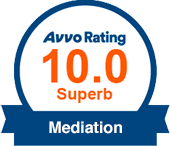Columbia Family & Divorce Lawyer > Blog > Divorce > 6 Ways Your Social and Professional Network Can Help You with Your Divorce
6 Ways Your Social and Professional Network Can Help You with Your Divorce
- Bring a detail-oriented family member or friend to your first few meetings with your lawyer. Divorce is more often than not a very stressful time for people, especially during the beginning stages, and having a second set of eyes and ears and a careful note taker often proves very helpful. Once the process has gotten underway and the relationship between lawyer and client has had a chance to develop, this may no longer be necessary. For many clients, the solace and support provided by a trusted family member or friend during divorce is invaluable.
- Have your accountant or financial planner assist you in the preparation of your financial statement. The financial statement is one of the most important documents in family law cases. An accurate (not artificially inflated) and comprehensive financial statement that captures all income and expenses is a critical settlement tool. In addition, in litigated cases, a good financial statement assists Judges in making appropriate alimony awards, builds credibility for the client and results in more favorable outcomes.
- Have your financial planner create an accurate statement of your assets and liabilities, with the backup account statements attached. An accurate statement of assets and liabilities assists in settlement and is essential to the preparation and evaluation of proposals regarding the valuation and division of assets. In addition, in all litigated cases, the court requires a Joint Statement of Parties Concerning Marital and Non-Marital Property (Md. Rule 9-207(b)). A thorough asset and liability statement is a useful tool in creating this essential and important document.
- See your therapist regularly, or if you do not have a therapist, get a recommendation from your attorney for a therapist with experience working with clients going through separation and divorce. The advice and guidance provided by mental health professionals to individuals involved in all types of divorce process is tremendously helpful in deescalating conflict, encouraging family and child focused behaviors and decision making and providing guidance through this often challenging and complicated life transition.
- Make therapy available to your children. Groups are especially accessible for young people. The National Family Resiliency Center (NFRC) https://www.nfrchelp.org/is is an excellent resource for families with children going through separation and divorce.
- Lean on friends and family. Make plans to walk, talk, grab coffee or go to a show or concert with your friends and family. Do not wait for your network to reach out to you when you need them (life is can be so busy, complicated, and demanding) however, experientially, family and friends will almost always make themselves available to spend time with you if you do the asking and planning – and do it. One of the best anecdotes for traversing through a difficult life experience is surrounding yourself with people you know and trust.










